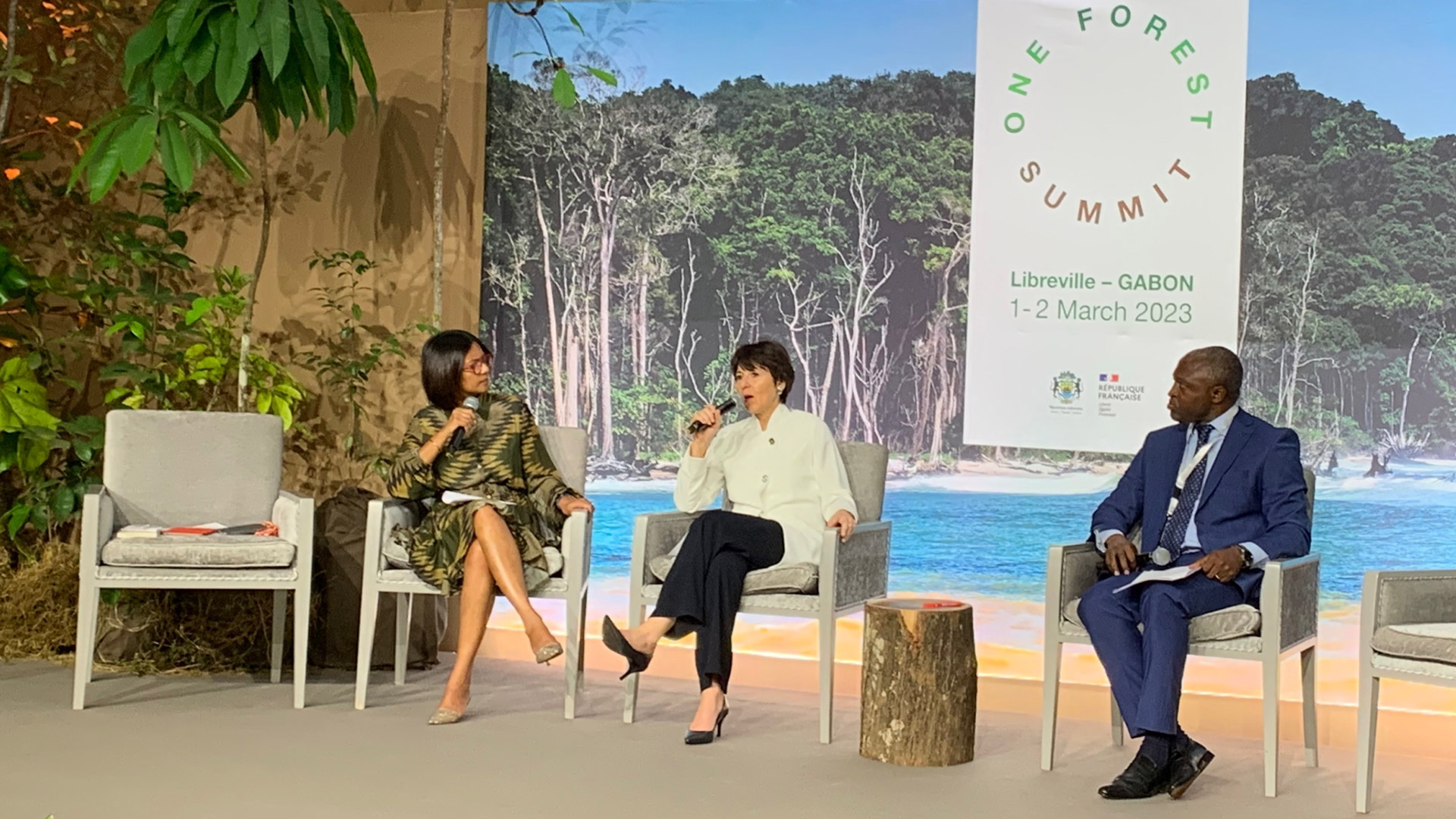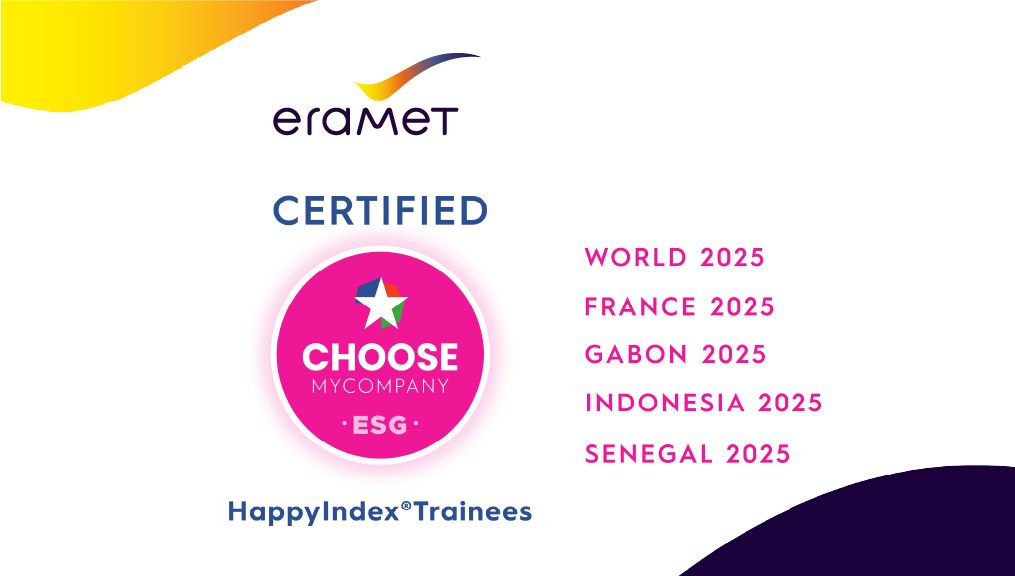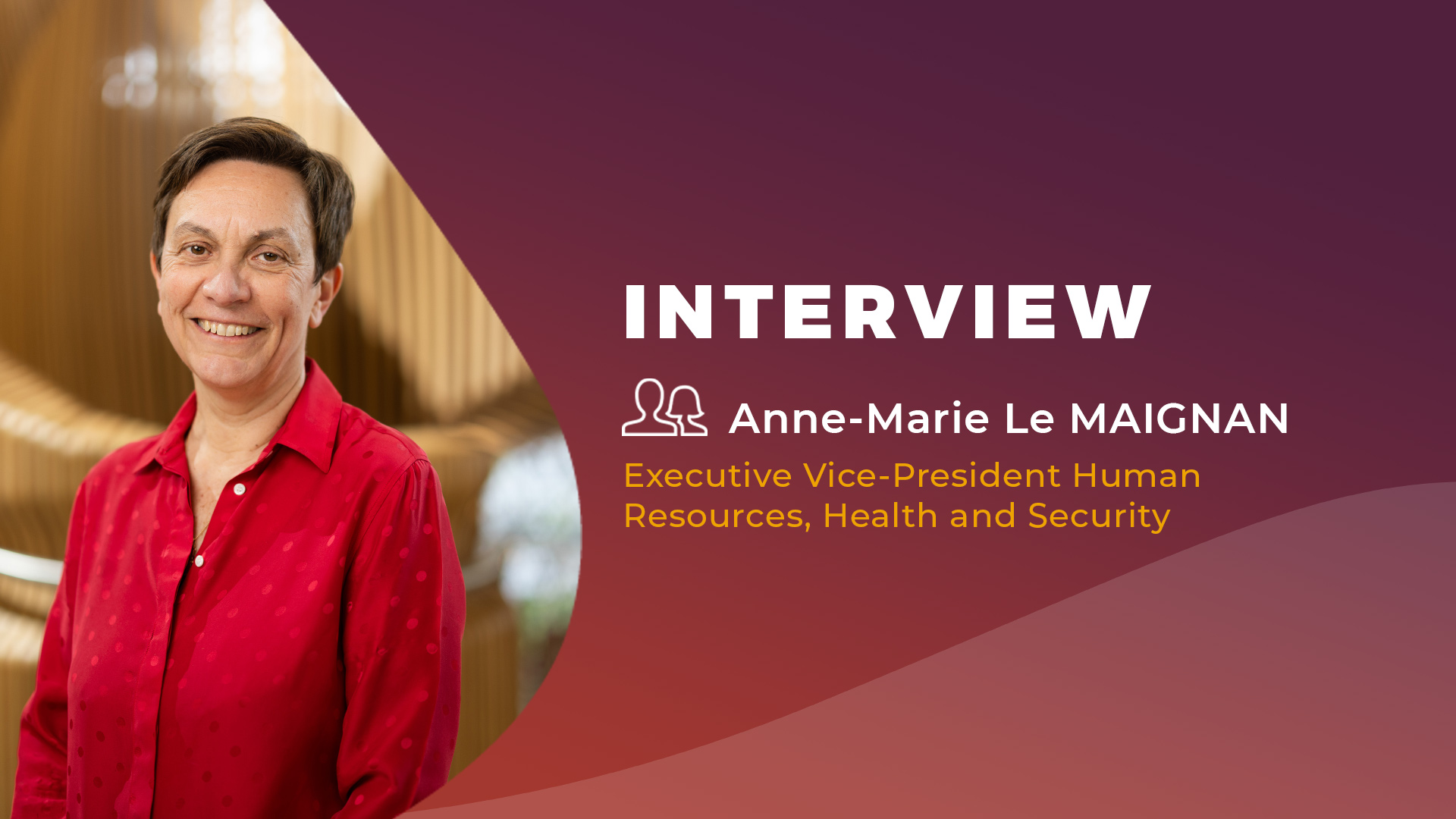Eramet, a historical player in Gabon, was present at the first One Forest Summit, which took place on March 1 and 2 in Libreville at the initiative and in the presence of the Gabonese and French Presidents. This event invited heads of state, organizations, institutions, NGOs and companies to address the issue of the preservation and sustainable management of forests.
By highlighting the essential contribution of forests to the climate, their role in capturing carbon and preserving biodiversity, the One Forest Summit demonstrates the joint desire of France and Gabon to succeed in reconciling protection of these ecosystems with economic development.
Christel Bories, CEO and Chair of Eramet, and Virginie de Chassey, Director of Sustainable Development and Corporate Engagement, represented the Group during the two days of conferences and discussions. At the end of the summit, the Libreville Plan was adopted by several nations (Cambodia, Ivory Coast, Republic of Congo, Uganda, United Kingdom, Zambia, France, Gabon and Canada) for the preservation of biodiversity in forest countries.
In Gabon, Eramet is the second largest private employer and operates the largest manganese mine in the world. The country is 88% covered by tropical forests, capturing large quantities of CO2 every second. These forests are the “green lungs” of Africa and are at the forefront of the fight against global warming and the protection of biodiversity, an issue to which Eramet is committed in Gabon, notably with the Lékédi Biodiversity Foundation.
At the One Forest Summit, Eramet unveiled Biomine, its project to develop bio-reducers – a conditioned biomass with specific properties – that would replace the coke currently used as a reducer in metallurgical furnaces.
The objective of this project is to produce these low-carbon bio-reducers from wood waste from the forestry industry and from new plantations, particularly in rehabilitated mining areas, by involving local populations. Combined with the decarbonized energy from which Eramet benefits in its plants in Gabon, Norway and France, the use of these bioreducers will contribute to decarbonizing manganese alloy production, illustrating the Group’s commitment to reduce its CO2 emissions by 40% by 2035.
“With this initiative, we can make Gabon a starting point for the production of green steel, and offer a new outlet for the Gabonese forestry industry, in particular for the wood waste that is not valued today,” comments Christel Bories. Indeed, to substitute 50% of the coke currently used in Eramet’s Gabonese plants, and thus reduce by 50% the CO2 emissions linked to manganese reduction, 40,000 tons of bio-reducers will be needed, i.e. approximately 200,000 tons of wood.
Economically, the project will stimulate the development of the local wood industry and is expected to create between 800 and 1,000 jobs, mainly for the maintenance of renewable forests, wood harvesting, sawmilling and the pyrolysis required for the production of bioreducers.
The year 2023 should allow us to define and validate various milestones for the future operation of the project.




